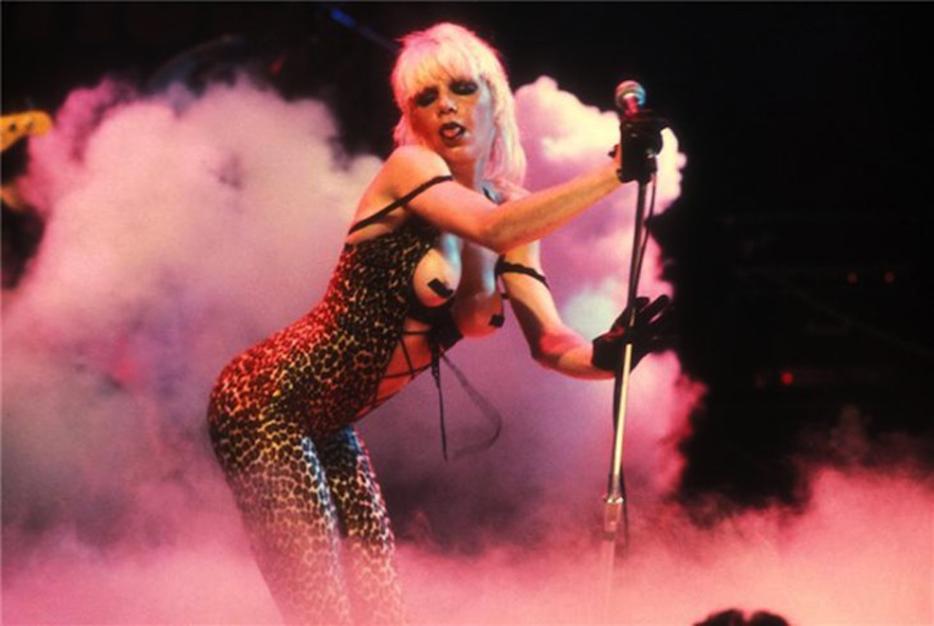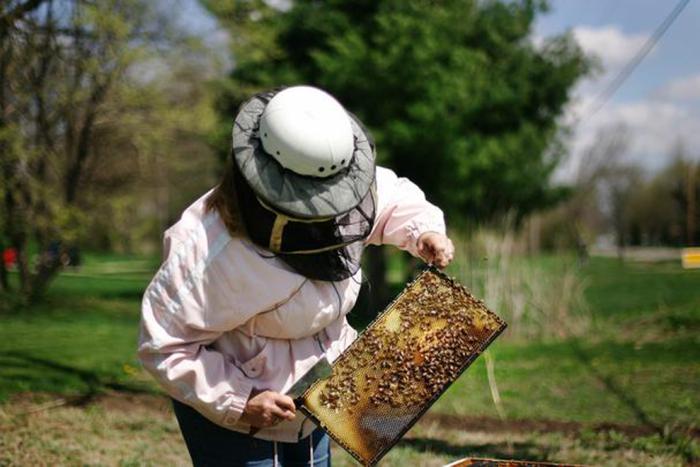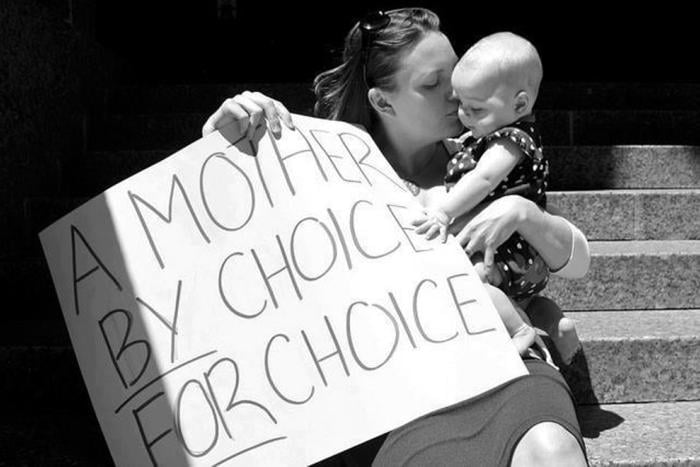Wendy O. Williams killed herself 15 years ago this Saturday. She left presents for her partner, Rod Swenson, including noodles he liked and seeds for salad greens, as well as a few notes: “My feelings about what I am doing ring loud and clear to an inner ear and a place where there is no self, only calm.” Then she went out into the woods and shot herself.
Williams and Swenson had met over 20 years earlier, when she landed in New York and applied for a job with Captain Kink’s Sex Fantasy Theater (he was Captain Kink). They formed the Plasmatics, part punk-metal band, part art concept, and she was a spectacular frontwoman: a grunting, nearly naked force of id who could stand still in front of an audience as naturally as she could slice a guitar in half with a chainsaw. Her career lasted a decade, and when it was over she moved with Swenson to Storrs, Connecticut, where he built them a geodesic dome to live in.
She volunteered at an animal shelter, nursed baby squirrels, and sold vitamins in a health shop. It was only biding time. Her life had settled into a permanent Sunday: it was all over except the feeling that it was all over. In 1993 she stabbed herself in the chest; in 1997 she overdosed on ephedrine. She’d made up her mind, she insisted it was for the best, and all Swenson could do was try to delay the inevitable. As Joy Williams wrote, in as careful and beautiful an elegy as one could hope for, “She could create a future only by killing herself.”
I don’t know why Wendy killed herself, of course, and I don’t know why Edouard Levé did, either, but I wonder if they did it for similar reasons. On October 5, 2007, Levé handed in the manuscript for a novel called Suicide, and ten days later he hanged himself. The book is a catalogue of a life: you can peruse it like a dictionary, “like picking marbles out of a bag,” to mix two of his metaphors. It’s written in the second person, addressed to a friend who shot himself at 25. “You used to want only to perform acts that would resonate for a long time,” Levé wrote, “gestures that, though completed in a few minutes, would leave vestiges to persist and continue to be seen.”
One theme in Suicide is how the future changes the past. It would be nice to think that every moment you ever lived is preserved somewhere immaculately. If not locked away in some mnemonic safe, to be released like New Year’s confetti as you ride out to brain death, then happening still in a dimension allowed by the laws of physics. But we know that memories are just memories of memories: they lose their connection to the moment that spawned them, they have more to do with how you are now than the way you were then.
I like to think that moments are less important than memories—just the seeds of memory, which is one of my favourite songs but memories can rot, and perhaps that’s worse than death. The present is a spine that orders the past and the future, and when it shifts everything does. Maybe suicide is a way of preserving the past you like to have lived.
Art is more constant than memory, and it makes sense to preserve your memories, as well as those feelings that are not quite memories but dreamlike hybrids thereof, by investing them in work. “When you recalled it, it was made weaker by your memory’s many points of imprecision. But others had imagined life in books: what you were reading was the superimposition of two consciousnesses, yours and that of the author. You used to doubt what you had perceived, but never what others invented.” Levé wrote this in a book before he killed himself.
If your work is done, why stick around? Particularly if your work is living a certain way, which, for Williams, it seems to have been; particularly if you think of your work as your afterlife, which Levé might have (but I don’t know). If there’s nothing after death, it makes sense to want to end at the right place. “In art, to reduce is perfect,” Levé wrote. “Your disappearance bestowed a negative beauty on you.” To keep living would be to add stupid adverbs or unnecessary scat verses. It might ruin the whole thing.
There’s death as the end of living and there’s death as the end of life. Twin concepts that provoke very different feelings, similar to the difference between missing somebody and grieving them. Death as the end of living is melancholy; it’s beautiful to think about. Death as the end of life is the worst thing you can think of. The former makes sense of suicide and the latter makes it unthinkable. I’d prefer to think of death as the last dotted “i,” but who knows what one thinks in their final moments.
Minutiae by Alexandra Molotkow appears every Thursday at Hazlitt.






